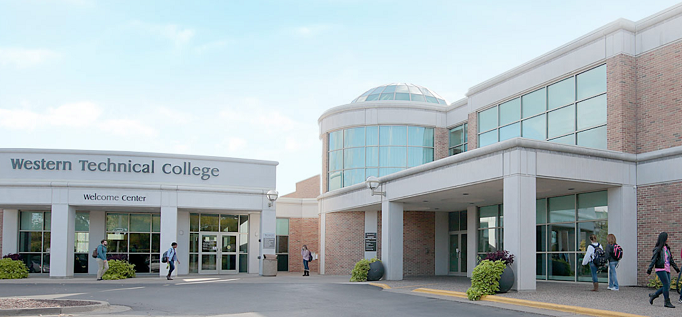Plowing the road
By Chad Dull
May 7, 2019
Removing barriers for students starts with a declaration and small actions.
In the Learner Support and Transition office at Western Technical College in La Crosse, Wisconsin, our work is moving people into and through postsecondary programs that change their economic reality. We have always known life barriers caused by poverty hurt our students’ chances of success.
In the article “Turning a College into a Movement,” Michael Sorrell, president of Paul Quinn College in Dallas, says his entire college had one goal that defines everything about them: “to end poverty.” How powerful. How brave is it just to say it? It makes you feel guilty for nibbling around the edges. Our days of nibbling are over. But how do you begin? For us, step one was declaring the movement.
Words matter. To capture something simple and memorable that would drive our work, we landed on the following “Every barrier that can be removed should be removed.” The staff immediately grabbed onto the idea, and discussions — and more importantly actions — began to occur.
We started with small actions, such as adding a basic needs statement to course syllabi, and we conducted our “No Audit.” Staff started coming up with ideas about barriers to remove. This led to a few practices we really believe in:
- GED Fund: Test fees are covered for those who need it with no judgment, no hoops to jump through and no questions asked
- Emergency Fund: Emergency fund access for students that requires no forms, no waiting and little red tape
- Credit for Prior Learning (CPL): Students can get college credit for life experience, which creates confidence and a sense of belonging.
- The Bowl: A (seemingly) never-ending snack bowl that alleviates hunger while establishing relationships and building community.
In addition, staff decided to change unfriendly STAFF ONLY signs to softer, more informative signs, and they also rearranged classrooms to look as professional and respectful as possible. Seeds of a movement perhaps? It might be a small thing, but wash, rinse, repeat and then you start to change a culture. Early results are promising; enrollment is up 40 percent this year.
Starting a movement requires the power of shared language and imagery. We’ve begun to use the analogy of “plowing the road” (we are from Wisconsin after all). Many of us had people who plowed the road to make our trip safer. Maybe it was well-resourced parents if we were fortunate, or someone else who took an active interest in our success. All too often, the people we serve traverse roads that aren’t plowed or are partially blocked because of the random circumstance they were born into. How is that fair? How much potential is left in tent cities and hungry bellies when we can do something? Every barrier that can be removed, should be removed… We have an opportunity to level the playing field and an obligation to do so.
So, we have a goal: End poverty (credit to Paul Quinn College).
We have a mission: Every Barrier that can be removed should be removed.
And we have action steps we describe as “plowing the road.” Those steps include paying attention to our behaviors and environment to create a sense of belonging, extensive use of credit for prior learning, food to build community, emergency funds to help mitigate the inevitable bumps in the road and many more to be developed. But first, we are declared our movement and committed to it. That must be step one.



